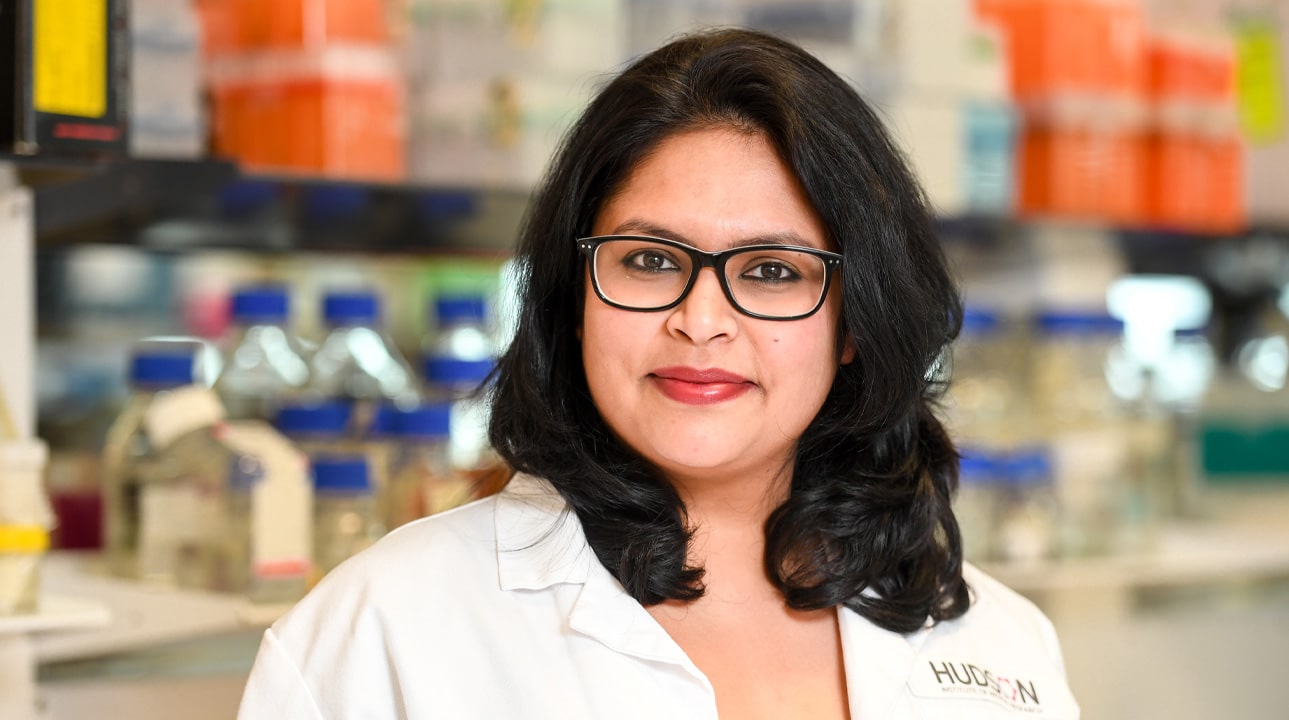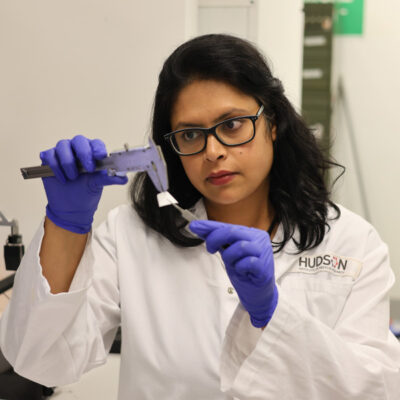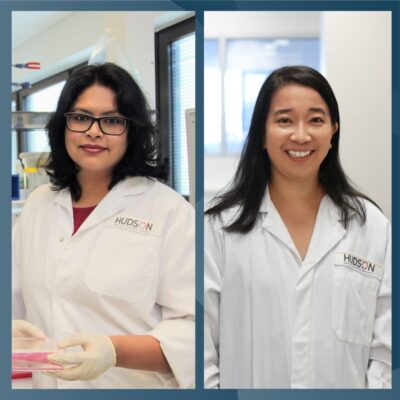Pelvic organ prolapse pioneer awarded fellowship
By Rob Clancy, staff writer

A researcher leading the search for a fix for pelvic organ prolapse (POP) has been awarded a prestigious fellowship to advance her work.
Dr Shayanti Mukherjee from Hudson Institute has received the Rebecca L. Cooper Medical Research Foundation’s Al & Val Rosenstrauss Fellowship, allowing her to continue her life-changing work.
The fellowship provides a total of one million dollars over five years and also delivers invaluable certainty – both for Dr Mukherjee and millions of women worldwide – that this research will continue.
Prevention and treatment to fix POP
As Head of the Translational Tissue Engineering lab at Hudson Institute, Dr Mukherjee is pioneering the application of cutting-edge technology to improve quality of life, especially for older women, through new treatment strategies for POP.
POP is a highly debilitating condition affecting over 50 per cent of women who have previously given birth. There is currently no cure or even optimal therapy and its ongoing care is often both debilitating and expensive.
Historically, transvaginal meshes made from thermoplastic polymer polypropylene were used in POP surgeries, however they have since been banned by the Therapeutic Goods Administration.
“My research merges advanced engineering principles, such as 3D bioprinting, with the use mesenchymal stem cells from the lining of a woman’s own uterus to develop safe, effective treatments for pelvic organ prolapse,” Dr Mukherjee said.
The fellowship is worth one million dollars over five years, allowing Dr Mukherjee’s team of two early career researchers and four PhD students to develop highly effective and personalised treatments.
Improving women’s quality of life
“This project’s outcomes will improve women’s quality of life, reduce healthcare expenditure and promote increased independence and ongoing wellbeing,” she said.
Dr Mukherjee acknowledged invaluable assistance from her mentor, Professor Anna Rosamilia, Head of Pelvic Floor disorders unit at Monash Health, in guiding the clinical translation of her research.
The Rebecca L. Cooper Medical Research Foundation has distributed $35 million over the past 40 years, funding areas of medical research that are not widely funded by other philanthropic bodies.
In a statement the Foundation congratulated the 2024 Al & Val Rosenstrauss Fellows. The Foundation is proud to announce that it will support Dr Sophia Davidson, WEHI; Dr Amy Winship, Monash Biomedicine Discovery Institute; and Dr Shayanti Mukherjee, Hudson Institute of Medical Research for the next five years as they grow their wonderful research programs and continue to build their careers as leaders within their areas of expertise.
This research was supported by | Rebecca L. Cooper Medical Research Foundation’s Al & Val Rosenstrauss Fellowship
In this article
About Hudson Institute
Hudson Institute’ s research programs deliver in three areas of medical need – inflammation, cancer, women’s and newborn health. More
Hudson News
Get the inside view on discoveries and patient stories
“Thank you Hudson Institute researchers. Your work brings such hope to all women with ovarian cancer knowing that potentially women in the future won't have to go through what we have!”





